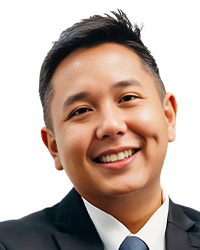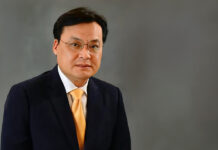Singapore’s hands-on government has delivered impressive results in just one lifetime, forging one of the world’s most dynamic and wealthiest economies by investing in the country’s only natural resource: human capital. Emerging from the pandemic into an uncertain landscape with soaring inflation, fiscal restraints and a weakened global economy, the small city-state now must grapple with the technological revolution sweeping the workplace.
The testing economic conditions of the past two years have been keenly felt by companies in a city so heavily reliant on trade that amounts to more than four times its gross domestic product. Retrenchments in Singapore doubled in 2023 to 14,320 from the year before and, at the same time, businesses are faced with an ageing workforce. About 30% of Singaporeans are 55 or older and their skillsets need to be updated for the new economy.
Employers need to give serious thought about retrenchment in Singapore or risk reputational damage, such as the damage caused to e-commerce platform Lazada in January 2024 when its layoffs attracted negative attention.
Future proofing

Director and Head of Employment
Helmsman
With the rapidly shifting skill sets required in the modern economy, attention to upskilling and reskilling employees is a must. This will become more important as AI and technology automates or makes redundant traditional roles, including for professionals such as doctors, architects and even lawyers.
The government is spending more on education as well as on continued training for those already in the workforce. The budget for the decade-old Skills Future programme has almost doubled, passing USD660 million in 2023. The government recently added a credit of almost USD3,000 for employees over the age of 40 for “selected training programmes with better employability outcomes” that include part-time and full-time diplomas and undergraduate programmes.
Workers must also identify where their existing skill sets can complement new ones to increase their employability in new areas of industry. From the employers’ perspective, an easy fix would be to import the needed skills, and Singapore has tried to facilitate this for top talent through its ONE Pass initiative. Otherwise, employers are subject to the prevailing criteria for work passes, which may make employment of foreign talent more difficult.
Singaporeans falling under the professionals, managers, executives and technicians (PMETs) category grew by 380,000 in the decade to 2023, more than seven times the number of foreigners in similar roles.In any case, importing talent is only a short-term fix and companies need to invest in training locals.
More protection
Singapore’s laws and policies have long been seen as targeting the protection of employers and ensuring a stable workforce, seen in the treatment of trade unions, which form part of a co-operative framework integrating them into policymaking with employers and government to prevent confrontation.
In the past decade, there has been a discernible shift towards increasing employee protection. Employers will have to acknowledge that the new generation of workers will expect fair and progressive employment practices, and management will need to ensure their workplace culture goes some way towards matching those expectations.
Examples of this trend in Singapore include a greater emphasis on fair employment practices such as workplace fairness legislation due to take effect in the second half of 2024. Employers must have processes to ensure recruitment is based on merit, not personal attributes such as race, age, gender, religion, marital status or disability. They must also have processes for resolving workplace disputes.
New guidelines on non-compete clauses will also come out later in the year to prevent employers from implementing overly restrictive restraint of trade clauses, which can create difficulties in finding new employment. Recently, the government announced that mandatory guidelines for implementing flexible work arrangements in Singapore will come into effect from 1 December 2024. While this has understandably been welcomed by employees, it requires a paradigm shift on the part of employers, especially those with a more traditional workplace culture. The widening in 2018 of the ambit of the Employment Act of Singapore to all workers, including PMETs, also grants greater statutory protection to employees.
Singapore’s track record of proactive policymaking has delivered impressive outcomes, with the nation’s 5.6 million people enjoying one of the highest GDP per capita in the world. The city’s schools regularly rank among the best in the world and a positive attitude towards continuing education of the workforce bodes well for the ability to adapt to the bruising demands of a world that is on the cusp of an epochal transition. The shifts in the balance of obligations and expectations of its people and businesses suggest the Lion City can continue to roar well into the future.
Matthew Teo is a director and head of employment at Helmsman

21A Duxton Hill, Singapore 089604
www.helmsmanlaw.com
Contact details:
T: +65 6950 8669
E: zhida.chen@helmsmanlaw.com




























